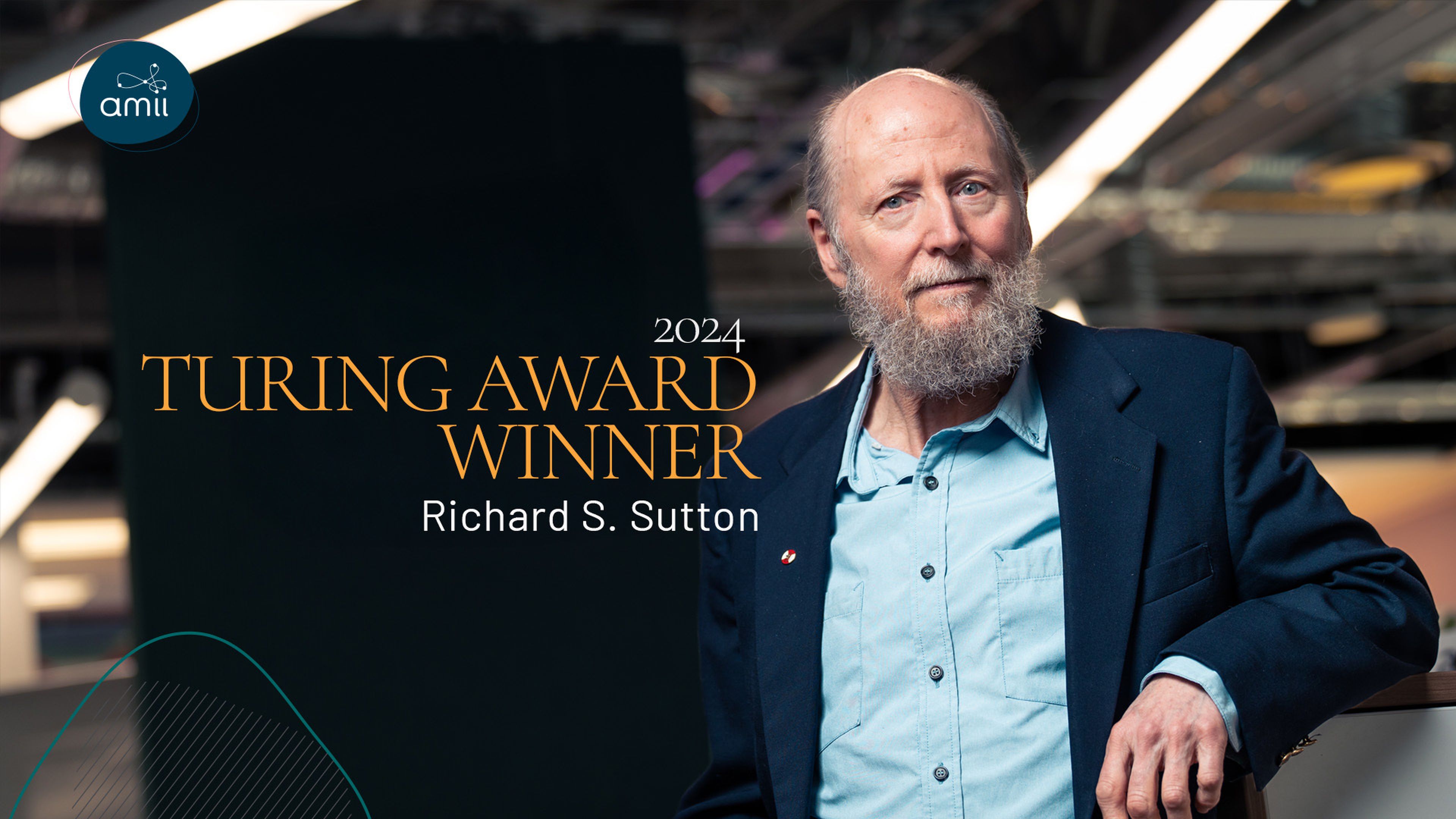Learning from experience
Richard S. Sutton, FRS, FRSC, is one of the pioneers of reinforcement learning, an approach to artificial and natural intelligence that emphasizes learning and planning from sample experience, and a field in which he continues to lead the world. He is most interested in understanding what it means to be intelligent, to predict and influence the world, to learn, perceive, act, and think. Over his career, he has made many significant contributions to the field, including the theory of temporal-difference learning, the actor-critic (policy gradient) class of algorithms, the Dyna architecture (integrating learning, planning and reacting), the Horde architecture, and gradient and emphatic temporal-difference algorithms – among other advancements. Richard currently seeks to extend reinforcement learning ideas to an empirically grounded approach to knowledge representation based on prediction.
Richard is Chief Scientific Advisor, a Fellow, and a Canada CIFAR AI Chair at Amii, a Professor of Computing Science at the University of Alberta, and a research scientist at Keen Technologies.
He was the original founder of the Reinforcement Learning & Artificial Intelligence (RLAI) Lab at the University of Alberta, and he is a co-author of Reinforcement Learning: An Introduction. Co-written by Richard and long-time collaborator Andrew Barto, it is the foundational textbook on reinforcement learning, now in its second edition.
Richard and Andrew were awarded the 2024 Turing Award for their remarkable work in establishing and advancing the field of reinforcement learning.

In 2023, Richard teamed up with John Carmack, visionary software engineer and founder of Keen Technologies, to focus and advance the science of artificial general intelligence. Through this work, documented in part in The Alberta Plan, Richard seeks to understand and create long-lived computation agents that interact with a vastly more complex world and come to predict and control their sensory input signals.
Richard has been named a Fellow of the Royal Society, Fellow of the Royal Society of Canada, the Association for the Advancement of Artificial Intelligence (AAAI), and the Canadian Artificial Intelligence Association (CAIAC), where he also received a Lifetime Achievement Award in 2018. Richard has been an academic supervisor to almost 60 early-career researchers, and his publications have been cited more than 93,000 times. Richard has been featured in popular publications such as Science, the Economist, the New York Times, the Wall Street Journal, and Bloomberg’s Hello World.
Rich Sutton: Ideas Matter
Rich Sutton has dedicated his career to understanding the mind, what he calls "one of the few great goods in the universe."
Learn more about his unique way of thinking, and the immense impact he's had on the science of AI.
Read now

Areas of
Expertise
AI
Reinforcement Learning
Model-free learning
Off-policy learning
Temporal-difference learning
Knowledge representation
Cognitive Science
Highlights
Fellow of Royal Society
Appointed in 2021 for his exceptional contributions to science
Fellow of Royal Society of Canada
Appointed in 2016
Outstanding Achievement in Research Award
University of Massachusetts Amherst
2013 Recipient
The President’s Award
International Neural Network Society
2003 Recipient




